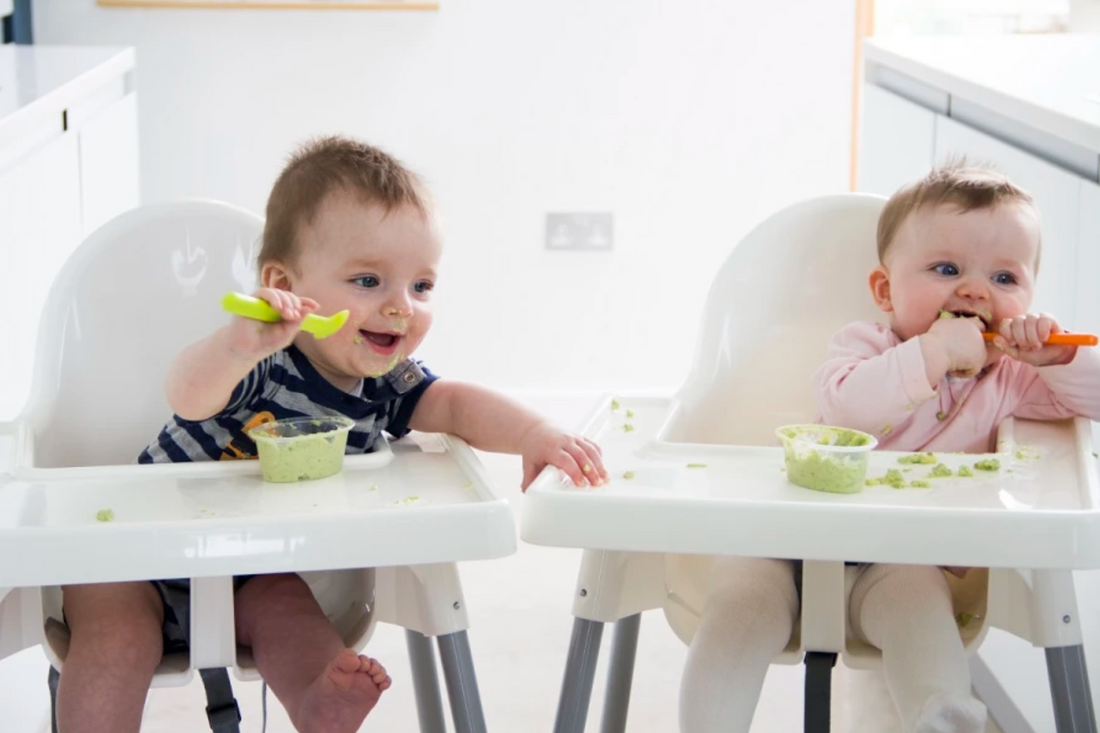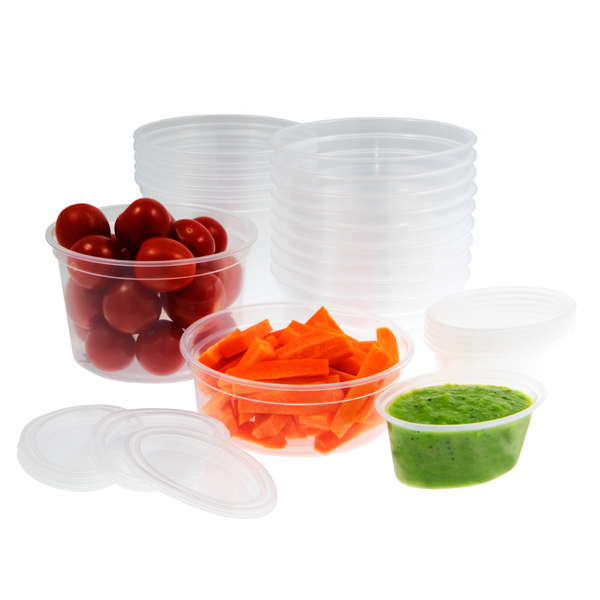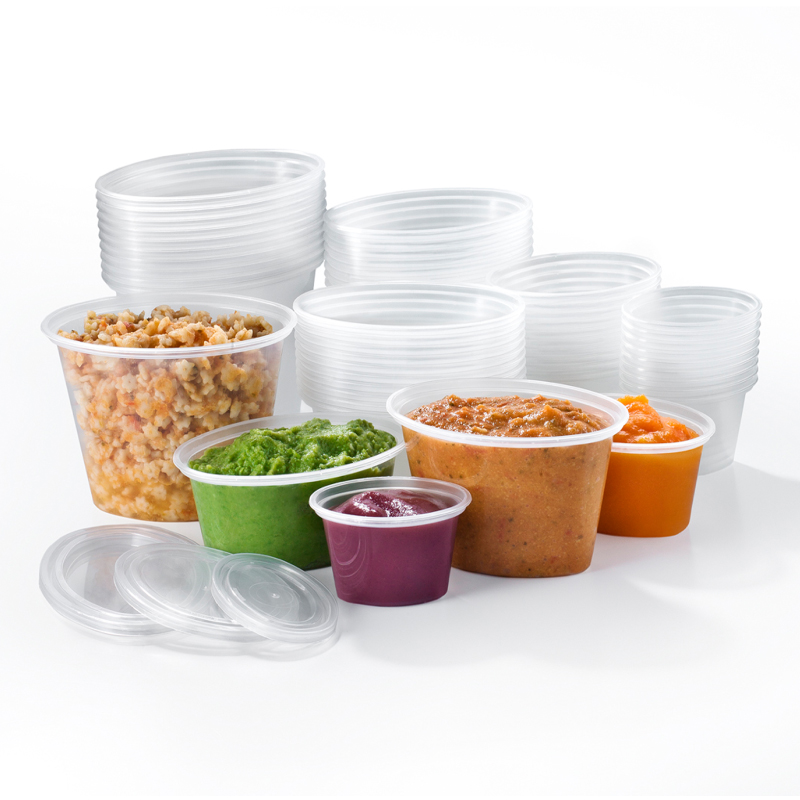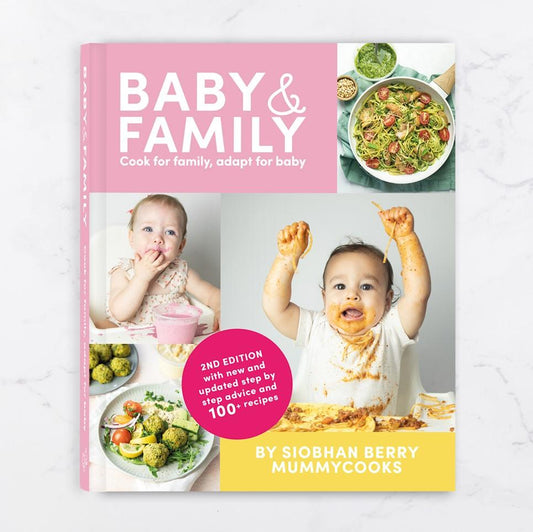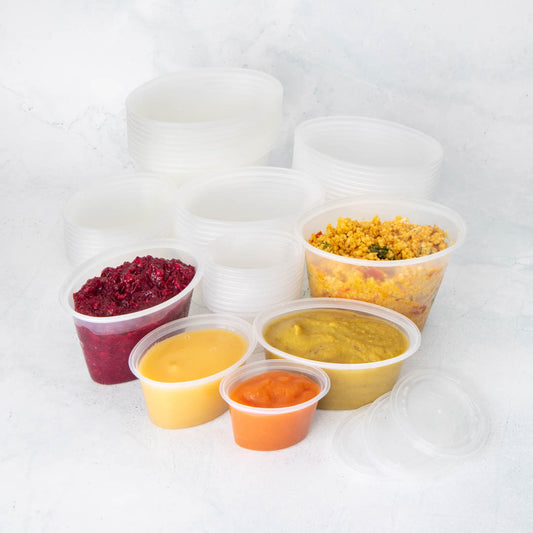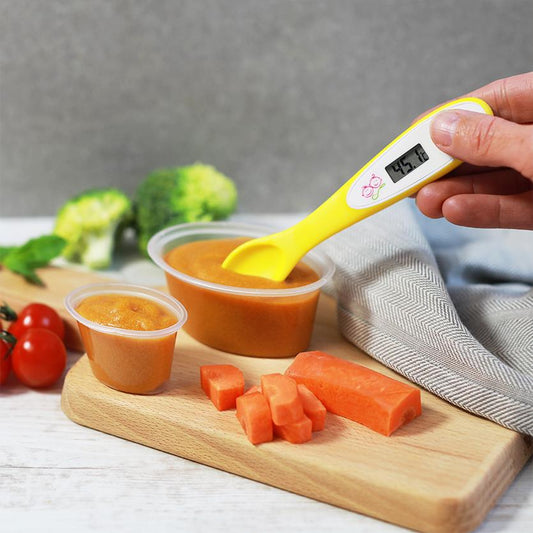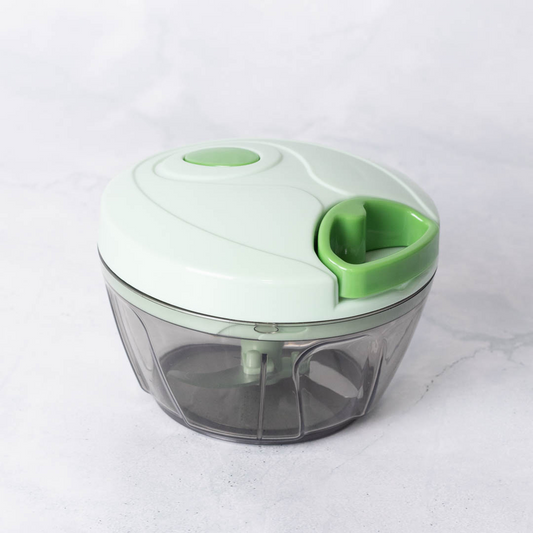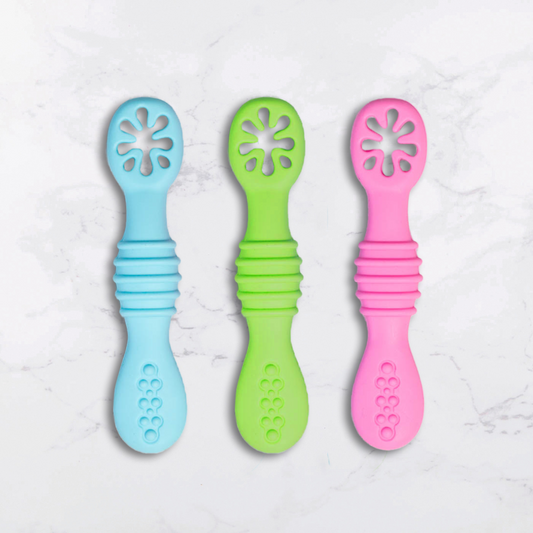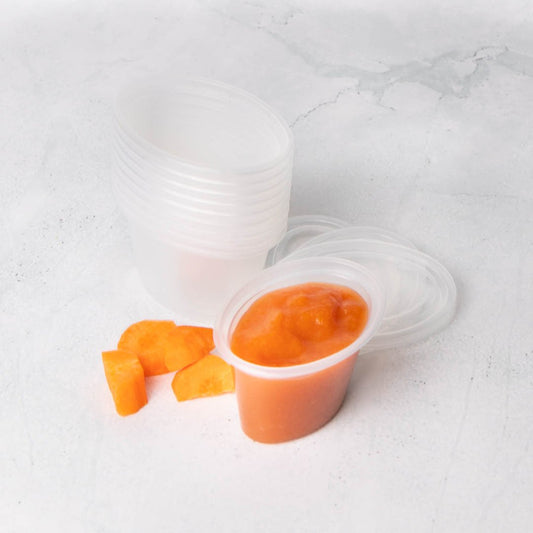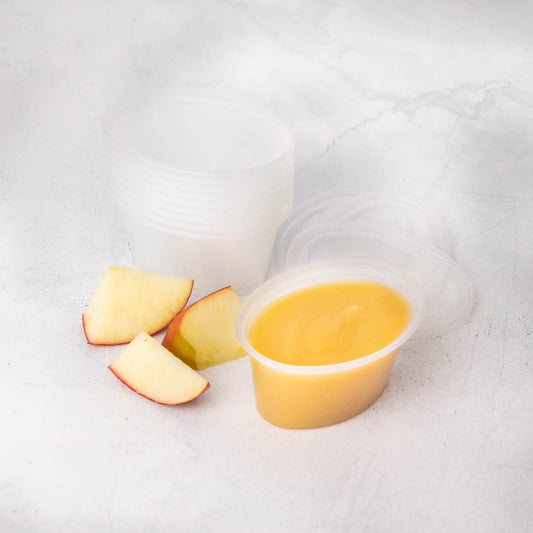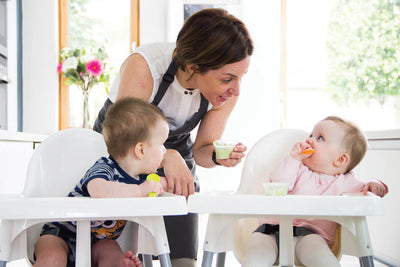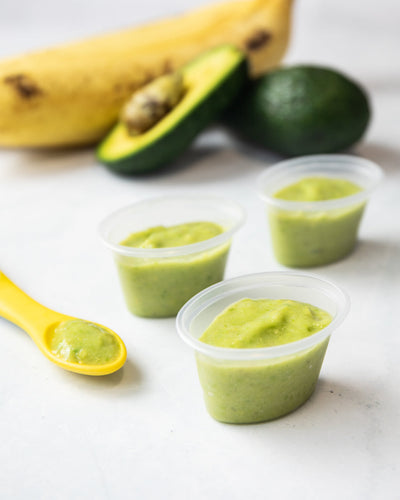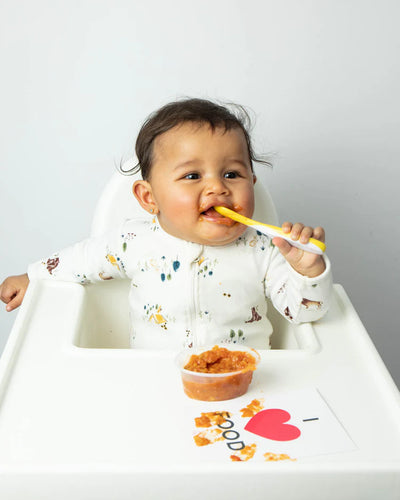Stomach Capacity
Babies and young children have a much smaller stomach capacity than adults, so the amounts of foods and fluids they can manage is smaller too. By filling up on fluids or snacks, your child will be less likely to eat at mealtimes. By offering the right foods and less fluids, you can ensure that the small amounts that your child does manage will have the right nutrients for healthy growth and wellness.Things that may affect appetite
-
Not allowing enough time between milk feeds and weaning food.
-
Breast milk or formula; limit to 500-600mls a day for a nine month old.
-
Continuously snacking throughout the day.
Textures
Often parents don’t move on with increasing textures or offering their baby finger foods as they are afraid of their baby gagging or worse, choking. It is so important to feed your baby a wide variety of foods and textures as this can really help to avoid a fussy eater later on. Try not to be over cautious or afraid to feed your child textured or lumpy foods. Check out our blog on Gagging or Choking here to conquer any fears you might have when it comes to feeding your baby.
Not accepting the spoon
There are certain babies that do not like being offered a spoon. It may be that the spoon is too hard or too wide. Offer spoons that are narrow and a little soft. If this fails, then your baby may not want to be spoon fed and this is fine! They may do much better with finger food. Giving your baby full control will help you introduce new flavours. Read our blog on introducing finger food to help. We have the perfect Baby Led Weaning Set to store all your recipes.Overfeeding
It is important not to feed your baby every time they cry; your baby needs time to develop a hunger for feeds so should not be fed every time they feel peckish. Without this sense of hunger or appetite developing from an early stage, it may be more difficult to encourage your child to eat at mealtimes later on. Let your baby eat according to their appetite; a bottle or weaning meal doesn’t have to be finished every time. If they are able to register that they are full and stop feeding on their own it is a good sign. Our Weaning and Portion Pots are a perfect way to portion your child’s meals and healthy snacks so that you can avoid them feeling overwhelmed with a large plate of food.
Teething
Teething can cause discomfort in many forms for your little one so it is normal that they don’t feel like eating during this period. Teething can start as early as 4 months and can disrupt feeding patterns. However, don’t be discouraged! Simply offer softer, cooler or more manageable foods that your baby will want to eat during teething. Why not try our Vegetable Omelette or a cool Avocado and Banana Puree for tasty, easy to eat options!
Tired
Sometimes a lack of appetite may just mean your child is too tired to eat. Ensure you are not compromising nap times during the day to fit in feeds. Work to a schedule that suits your baby; should they need a nap at a certain time each day, stick to it and work in feeds around that.If it happens that your baby is having an off day in terms of sleep and appetite, offer a meal with something familiar or that they enjoy to make the feed less stressful.
Under the Weather
If your baby is feeling unwell, the last thing on their mind will be food. It is important not to force your baby to eat if this is the case. Instead, offer more appetizing foods in relevant portions like their favourite finger food or puree. Our Sweet Potato Tots are always a hit in my house, so why not batch cook and freeze in the Family Portion Pots to have on hand during difficult feeding periods. Positive encouragement is key so try not to get frustrated! As soon as your baby is on the mend go back to introducing new tastes and textures as soon as you can.
Mummy Cooks Top Tips
-
Keep mealtimes regular; familiarising your child with feeding routines will increase appetite.
-
Try not to offer drinks or liquids 20 minutes before mealtimes.
-
Only offer ½ cup of water during a meal, and only do so when half of the meal is eaten.
-
Make a list of what your child has actually eaten throughout the day. You may be surprised at how much they have consumed, the variety of foods (or lack of) or their fluid intake.
-
Aim to offer new foods and textures from 6 months to avoid boredom and possible fussy eating habits that could result in food refusal.
-
Limit snacking throughout the day to ensure your child does not fill up on snacks, making them less likely to have an appetite for mealtimes.
-
Never force feed; this can lead to a stressful meal time for both parent and baby as well as creating a negative association with mealtimes for your child.
Remember
Off days are normal so 1-2 days of smaller feeds is okay. Once your baby seems well there is no need to worry. If you are still concerned after close monitoring or if loss of appetite or sudden refusal of feeds continues and your baby is irritable or crying, see your child’s doctor.
Check out our Baby & Family Recipe Book for lots more feeding advice, as well as plenty of family recipes that can be adapted for your weaning baby
Our Weaning Advice page provides information and advice on weaning your baby. It includes recipes, tips, and articles on a variety of topics related to weaning, such as introducing finger food, adding herbs and spices to baby food, and healthy snacks for your baby, and lots more

